There's nothing quite like biting into a juicy burger nestled between soft, pillowy burger buns you made with your own hands. I still remember the first time I realized store-bought buns couldn't compare to homemade; the texture, the freshness, the aroma filling my kitchen. This burger buns recipe is my go-to whenever I'm firing up the grill or craving the perfect burger experience at home.
Whether you're planning a backyard BBQ or just want to elevate your weeknight dinner, these homemade burger buns will make all the difference. Trust me, once you try these soft and fluffy burger buns, you'll never go back to the store-bought version. The best part? They're surprisingly simple to make, and I'll walk you through every step.
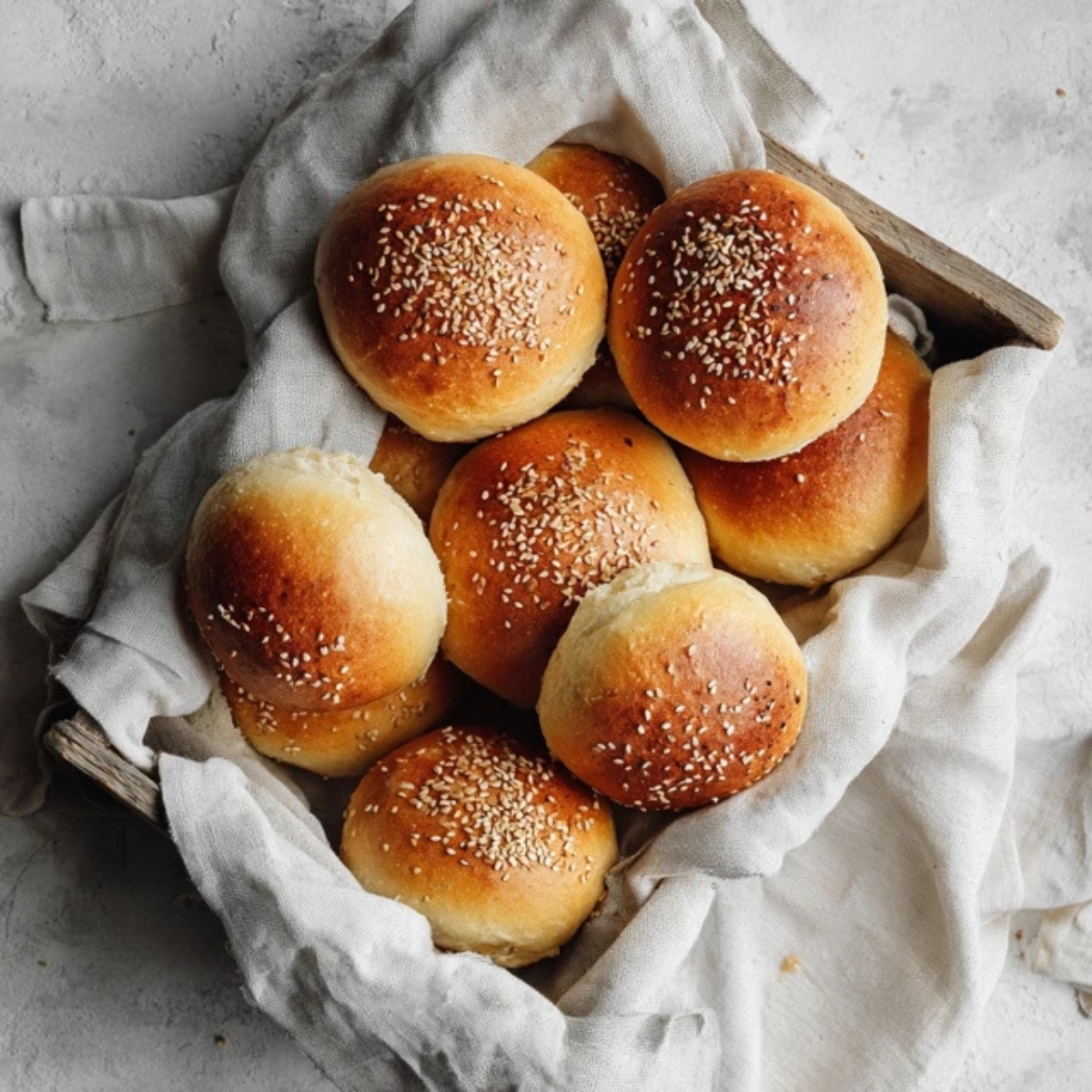
Background & Why This Recipe Creates Bakery-Style Results
The magic behind amazing burger buns lies in understanding what makes them special. Professional bakers know that the perfect burger buns need just the right balance of structure and softness; they should be sturdy enough to hold all your toppings without falling apart, yet tender enough to practically melt in your mouth. This recipe achieves that balance through a combination of milk, butter, and the perfect rising time.
What sets these burger buns apart from others is the enriched dough technique borrowed from classic brioche methods. The addition of milk creates a tender crumb, while butter adds richness and helps the buns stay fresh longer. I've tested countless variations over the years, adjusting ratios and techniques until I landed on this foolproof method. These buns have that bakery-style quality with a golden-brown top, soft sides, and that signature slight sweetness that complements both beef burgers and chicken sandwiches perfectly.
Jump to:
- Background & Why This Recipe Creates Bakery-Style Results
- Ingredients
- Instructions
- Expert Cooking Tips
- Recipe Variations & Substitutions
- Equipment Recommendations
- Storage & Meal Prep Tips
- Grandma's Secret That Changed Everything
- FAQ
- Why These Buns Will Become Your Go-To Recipe
- Related
- Pairing
- Homemade Burger Buns Recipe
Ingredients
For the Dough
- All purpose flour, plus extra for dusting
- Active dry yeast (one standard packet)
- Granulated sugar
- Whole milk, warmed to about 110°F
- Egg, room temperature
- Unsalted butter, melted and slightly cooled
- Salt
For Topping
- Egg beaten with 1 tablespoon water (egg wash)
- Sesame seeds (optional but highly recommended)
Substitution Notes: You can swap whole milk with any dairy alternative for vegan burger buns; just use plant-based milk and replace butter with coconut oil. For whole wheat burger buns, substitute half the all purpose flour with whole wheat flour. If you're making gluten free burger buns, you'll need a specialized gluten free flour blend designed for yeast breads.
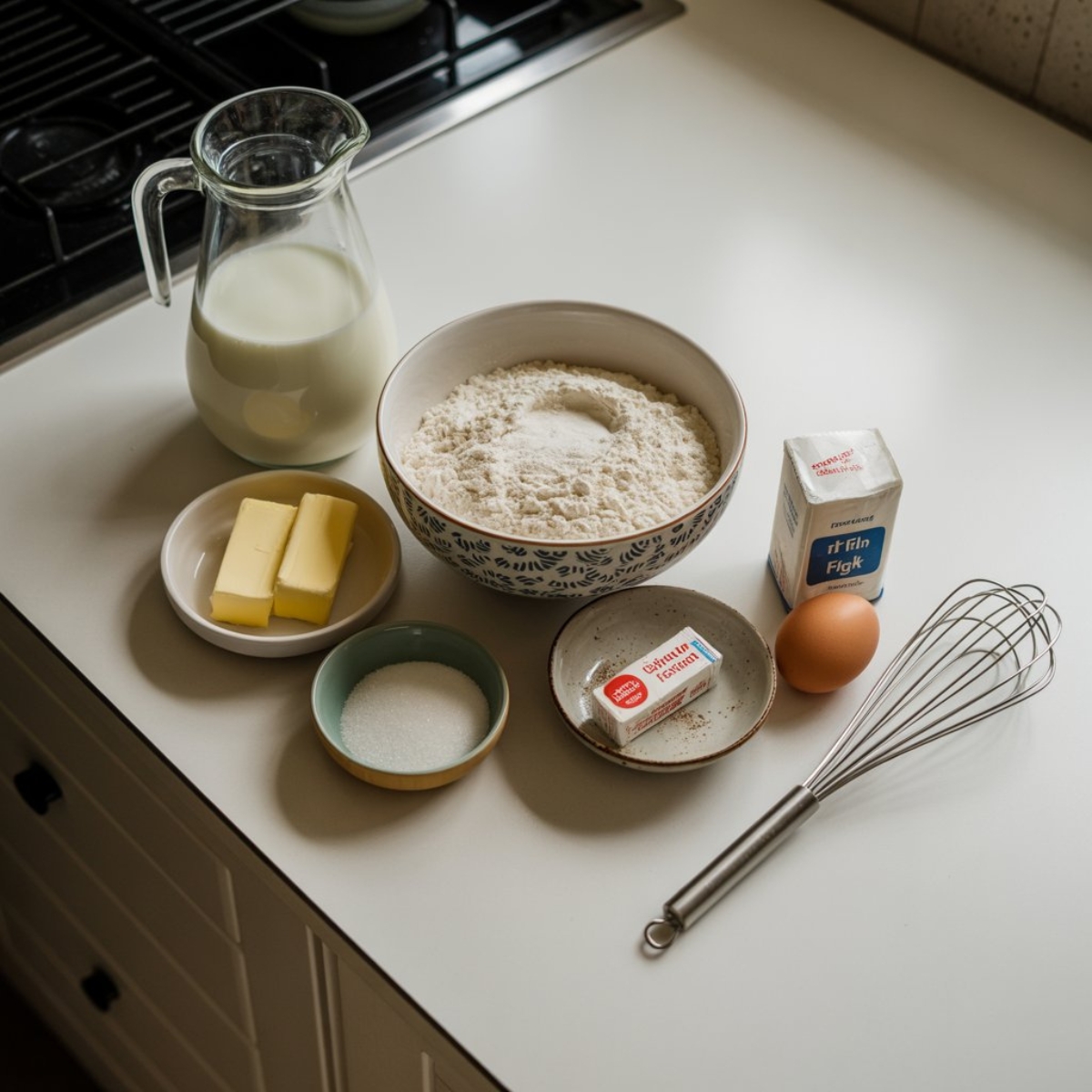
See recipe card for quantities.
Instructions
Step 1: Activate the Yeast and Mix the Dough
- In a large mixing bowl or the bowl of your stand mixer, combine the warm milk and sugar, stirring until the sugar dissolves.
- Sprinkle the active dry yeast over the milk mixture and let it sit for 5-10 minutes until it becomes foamy; this proves your yeast is alive and ready.
- Add the egg and melted butter to the yeast mixture, whisking gently to combine everything evenly.
- Add 3 cups of flour and the salt to the wet ingredients, mixing with a wooden spoon or the dough hook attachment on low speed.
- Gradually add the remaining cup of flour, a little at a time, until the dough comes together and pulls away from the sides of the bowl.
- The dough should be slightly tacky but not sticky; if it's too wet, add flour one tablespoon at a time.
Step 2: Knead and First Rise
- If using a stand mixer, knead the dough with the dough hook on medium speed for 8-10 minutes until smooth and elastic.
- For hand kneading, turn the dough onto a lightly floured surface and knead for 10-12 minutes until it becomes smooth and springs back when poked.
- Form the dough into a ball and place it in a greased bowl, turning once to coat all sides with oil.
- Cover the bowl with a clean kitchen towel or plastic wrap and let it rise in a warm, draft-free spot for 60-90 minutes, or until doubled in size.
- You'll know it's ready when you poke the dough with your finger and the indentation remains.
Step 3: Shape Your Burger Buns
- Once risen, punch down the dough gently to release the air bubbles that have formed during fermentation.
- Turn the dough onto a lightly floured work surface and divide it into 8 equal pieces for large burger buns or 12 pieces for mini burger buns.
- To shape each bun, flatten a piece of dough slightly, then fold the edges toward the center, pinching them together.
- Flip the dough ball over so the smooth side is up, then cup your hand over it and roll in a circular motion to create tension and a perfectly round shape.
- Place the shaped buns on a parchment-lined baking sheet, spacing them about 3 inches apart to allow for expansion.
- Gently press down on each bun to flatten slightly; they should be about ¾ inch thick.
- Cover the buns loosely with a kitchen towel and let them rise for another 30-45 minutes until puffy and nearly doubled.
Step 4: Bake to Golden Perfection
- While the buns are rising, preheat your oven to 375°F (190°C) and position the rack in the center.
- Once the buns have completed their second rise, brush the tops gently with the egg wash using a pastry brush.
- Sprinkle sesame seeds over the tops if desired, pressing them in very lightly so they stick.
- Bake for 15-18 minutes until the burger buns are golden brown on top and sound hollow when tapped on the bottom.
- Remove from the oven and transfer the buns to a wire rack to cool for at least 15 minutes before slicing.
- The internal temperature should reach about 190°F when fully baked.
Expert Cooking Tips
Getting your burger buns to turn out perfectly every time comes down to mastering a few key techniques. Here's what I've learned through years of baking that'll help you avoid common pitfalls.
- Temperature Matters for Yeast Activation The milk temperature is critical; too hot and you'll kill the yeast, too cold and it won't activate properly. Aim for 105-110°F, which should feel warm but not hot when you test it on your wrist. If you don't have a thermometer, heat the milk for about 30-40 seconds in the microwave, then test it.
- Don't Skip the Kneading Process Proper kneading develops the gluten structure that gives these homemade burger buns their perfect texture. You'll know the dough is ready when it's smooth, elastic, and springs back when poked. Under-kneaded dough will result in dense, heavy buns.
- Create the Perfect Rising Environment If your kitchen is cold, create a warm spot by turning your oven on for just 1 minute, then turning it off. Place the covered dough inside the slightly warm oven to rise. Alternatively, place the bowl near (not on) a warm stovetop.
- The Windowpane Test To check if you've kneaded enough, take a small piece of dough and stretch it gently between your fingers. If it stretches thin enough to see light through it without tearing, you're done kneading.
- Egg Wash for That Bakery Shine Don't skip the egg wash; it's what gives your buns that beautiful golden color and slight shine you see on bakery style burger buns. For an even richer color, use just egg yolk mixed with a splash of cream instead of whole egg and water.
Recipe Variations & Substitutions
One of the best things about this burger buns recipe is how adaptable it is to different tastes and dietary needs. Here are my favorite variations that I rotate through regularly.
- Brioche Burger Buns For extra-rich brioche burger buns, increase the butter to 6 tablespoons and add an extra egg yolk to the dough. The result is an incredibly tender, slightly sweet bun that's perfect for gourmet burgers. These are my absolute favorite for special occasions.
- Whole Wheat Burger Buns Replace up to half the all purpose flour with whole wheat flour for a nuttier flavor and added nutrition. You may need to add 2-3 tablespoons more liquid since whole wheat flour absorbs more moisture. These pair wonderfully with turkey burgers or veggie burgers.
- Potato Burger Buns Add ½ cup of mashed potato (cooled) to the dough for incredibly soft potato burger buns that stay fresh for days. Reduce the milk slightly to ⅔ cup to compensate for the moisture in the potatoes. This is actually a traditional technique that many commercial bakeries use.
- Pretzel Burger Buns After shaping, dip each bun briefly in a boiling water bath with 2 tablespoons of baking soda, then sprinkle with coarse salt instead of sesame seeds before baking. You'll get that distinctive pretzel flavor and dark mahogany crust.
- Vegan Burger Buns Use your favorite plant-based milk, replace the butter with coconut oil or vegan butter, and substitute the egg in the dough with 3 tablespoons of aquafaba (chickpea liquid). For the egg wash, use plant-based milk instead.
- Mini Burger Buns for Sliders Divide the dough into 16-20 pieces instead of 8 for perfect slider-sized buns. Reduce the baking time to 12-14 minutes. These are fantastic for parties and allow guests to try multiple burger variations.
Equipment Recommendations
Having the right tools makes this burger buns recipe even easier and more enjoyable to execute.
- Stand Mixer with Dough Hook While you can absolutely make these by hand, a stand mixer saves significant time and effort. The KitchenAid is my workhorse for all bread baking projects. If kneading by hand, expect to add about 5 minutes to your kneading time.
- Kitchen Scale For the most consistent results with homemade burger buns, weighing your flour is far more accurate than measuring by volume. Flour can be packed differently each time, leading to variations in your dough consistency.
- Baking Sheet and Parchment Paper A heavy-duty rimmed baking sheet prevents burning on the bottom and provides even heat distribution. Parchment paper ensures your buns won't stick and makes cleanup a breeze.
- Instant-Read Thermometer This helps you nail the milk temperature for yeast activation and check the internal temperature of your buns to ensure they're fully baked through.
- Pastry Brush Essential for applying the egg wash evenly without deflating your risen buns. A silicone brush is easier to clean than natural bristles.
Storage & Meal Prep Tips
Proper storage ensures your burger buns stay as fresh as the day you baked them, and these tips help you plan ahead for busy weeks.
- Room Temperature Storage Store completely cooled buns in an airtight container or resealable plastic bag at room temperature for up to 3 days. Don't refrigerate them, as this actually speeds up staling due to the retrogradation of starches.
- Freezing for Long-Term Storage These homemade burger buns freeze beautifully for up to 3 months. Once completely cooled, wrap each bun individually in plastic wrap, then place all wrapped buns in a freezer bag. Remove as many as you need and let them thaw at room temperature for 2-3 hours, or warm them in a 300°F oven for 10 minutes.
- Make-Ahead Dough Strategy You can prepare the dough through the first rise, then refrigerate it overnight in a covered bowl. The next day, let it come to room temperature for about 30 minutes, then continue with shaping and the second rise. This slow fermentation actually develops even better flavor.
- Refreshing Day-Old Buns If your buns have lost some of their softness, wrap them in a damp paper towel and microwave for 10-15 seconds. Alternatively, brush with a little melted butter and warm in a 300°F oven for 5 minutes.
- Pre-Slicing and Freezing Slice the buns before freezing so you can toast them directly from frozen. This is perfect for quick weeknight burgers when you don't have time to thaw.
Grandma's Secret That Changed Everything
Here's something most burger buns recipes won't tell you, but it's the trick my grandmother swore by for bakery-quality results every single time.
The secret is in the steam. About 2 minutes into baking, quickly open the oven and spray the buns lightly with water from a spray bottle, then close the door immediately. This creates a steamy environment that allows the burger buns to expand fully before the crust sets, resulting in lighter, fluffier buns with that professional look. The steam also contributes to a thinner, more delicate crust that won't overpower your burger. I was skeptical the first time Grandma showed me this technique, but the difference was undeniable.
Another game-changing tip is to let your shaped burger buns rest for 10 minutes at room temperature before starting the second rise. This relaxation period allows the gluten to settle, which prevents the buns from shrinking as they bake. It seems like such a small step, but it's the difference between buns that hold their perfect round shape and ones that end up slightly misshapen. Trust the process, and these little details will elevate your homemade burger buns from good to absolutely exceptional.
FAQ
What is the secret to a good burger bun?
The secret to exceptional burger buns lies in three key factors: proper gluten development through adequate kneading, enriching the dough with milk and butter for tenderness, and allowing sufficient rise time so the buns become light and airy rather than dense. The egg wash before baking also creates that signature golden crust that makes homemade burger buns look professionally made.
How long do burger buns take to bake?
Burger buns typically take 15-18 minutes to bake at 375°F, depending on their size. You'll know they're done when they're golden brown on top and sound hollow when tapped on the bottom. For mini burger buns or sliders, reduce the baking time to 12-14 minutes and watch them carefully to prevent over-browning.
Why are my homemade hamburger buns dense?
Dense homemade burger buns usually result from either under-kneaded dough that hasn't developed enough gluten structure, insufficient rising time, or using yeast that wasn't properly activated. Make sure your milk is the right temperature (105-110°F) to activate the yeast, knead until the dough is smooth and elastic, and allow the full rising time even if it takes longer than expected in a cool kitchen.
How long do homemade buns stay fresh?
Homemade burger buns stay fresh at room temperature in an airtight container for 3 days. For longer storage, freeze them for up to 3 months wrapped individually in plastic wrap and placed in a freezer bag. Unlike store-bought buns with preservatives, these are best enjoyed within a few days for optimal freshness and texture, though they'll still be delicious when properly stored.
Why These Buns Will Become Your Go-To Recipe
Now that you've mastered this burger buns recipe, you're equipped to create restaurant-quality burgers at home anytime the craving hits. These soft, fluffy burger buns transform even the simplest burger into something special, and your family will definitely notice the difference. I love making a double batch and freezing half for those busy weeknights when I need dinner on the table quickly but still want that homemade touch.
Once you've perfected your buns, take your burger game even further with my Crispy Chicken Caesar Sandwich Recipe that pairs beautifully with these buns, or try the indulgent Garlic Parmesan Cheeseburger Bombs Recipe for your next party. The beauty of homemade burger buns is their versatility; they work with everything from classic beef burgers to pulled pork sandwiches and veggie burgers. Give this recipe a try this weekend, and I guarantee these will become your new standard for burger buns. Happy baking!
With love from my kitchen to yours,
Aubrey James
Related
Looking for other recipes like this? Try these:
Pairing
These are my favorite dishes to serve with this burger buns recipe:

Homemade Burger Buns Recipe
Equipment
- 1 Stand mixer with dough hook or mix and knead by hand
- 1 Mixing bowl for combining ingredients
- 1 Kitchen scale for accurate flour measurement
- 1 Baking sheet lined with parchment paper
- 1 Pastry brush for egg wash
- 1 Instant-read Thermometer to check yeast activation and baking temperature
Ingredients
- 4 cups all purpose flour plus extra for dusting
- 2.25 teaspoon active dry yeast one packet
- 0.25 cup granulated sugar
- 1.25 cups whole milk warmed to 110°F
- 1 large egg room temperature
- 4 tablespoon unsalted butter melted and slightly cooled
- 1.5 teaspoon salt
- 1 egg wash 1 beaten egg mixed with 1 tablespoon water
- 2 tablespoon sesame seeds optional for topping
Instructions
- Mix yeast and milk until foamy.
- Add egg, butter, flour, salt.
- Knead dough until smooth.
- Let dough rise until doubled.
- Divide and shape into balls.
- Let shaped buns rise again.
- Brush with egg wash and add sesame.
- Bake at 375°F until golden.
- Cool on wire rack before slicing.

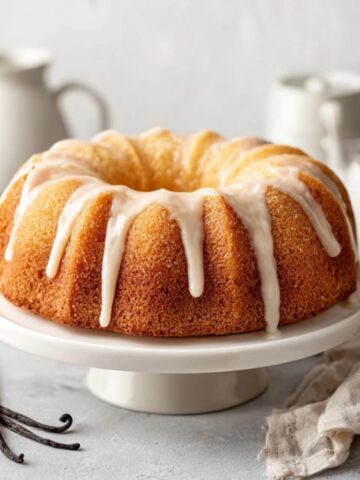


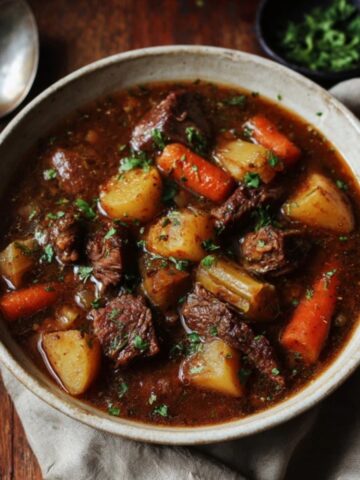
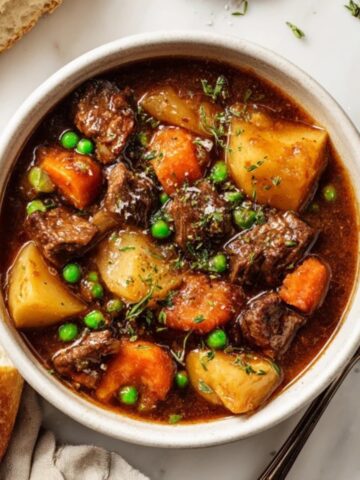
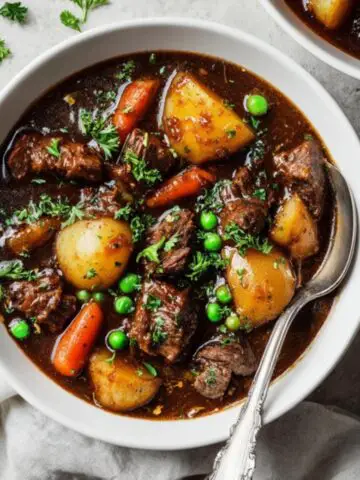
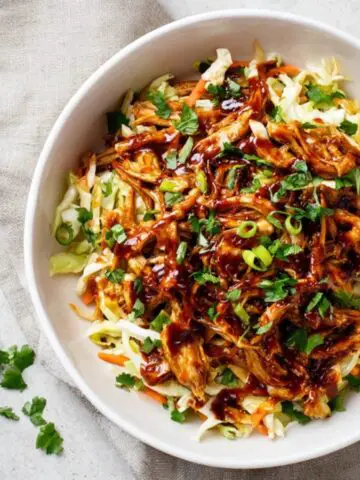
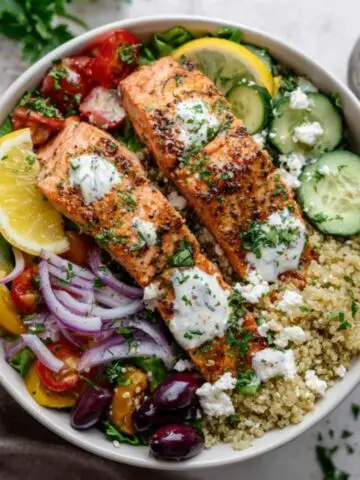
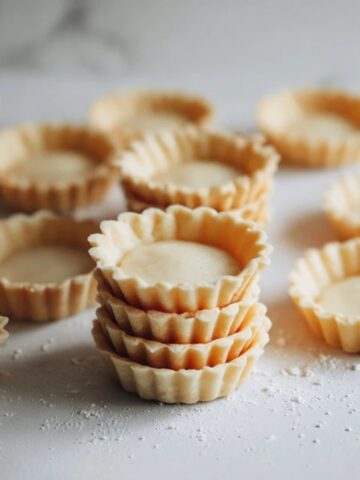
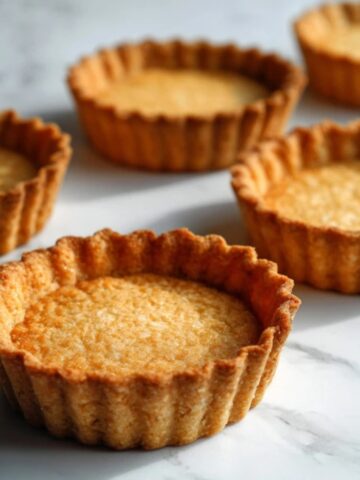

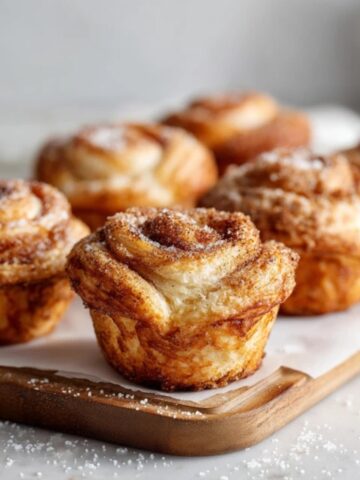
Leave a Reply